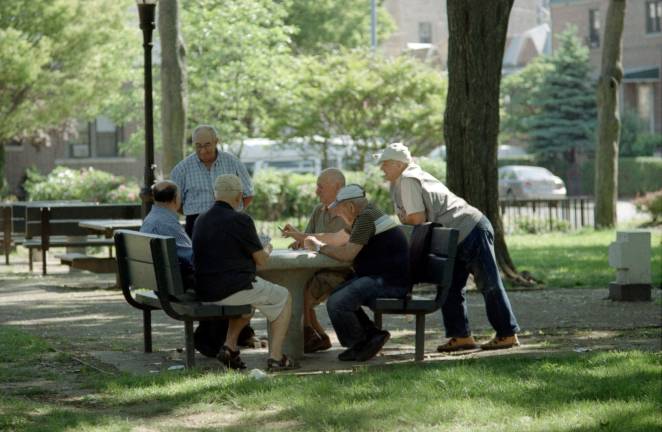When the Kids Drift Away Senior Living

I recently attended a seminar called “Walking on Eggshells” about severed or difficult relationships with adult children. There’s nothing more heartbreaking to a parent than losing that thread with your adult child and trying to repair the damage, to no avail. I heard stories that were so painful I was close to tears. And truth be told, I have gone through my own times of difficulties with my adult daughters where we didn’t speak and couldn’t seem to communicate. But thankfully, we were able to repair the relationships. My fingers are always crossed.
The stories come in all shapes and sizes. Some parents (I should say mothers, because only women were there, though I’m sure it affects men, too) were totally out of touch with their child or children. Some knew what had precipitated the break; some had no idea. In all the stories I heard, the mothers felt that what they had done did not deserve being totally cut off from their children, and in some cases, grandchildren. Yes, there were disagreements, perhaps harsh words. But a total refusal to be in contact? They couldn’t reconcile themselves to this. In other cases, the break wasn’t total but was painful nonetheless. A mother whose son had to always check with his wife about their limited availability regarding the grandson. Another mother who was called selfish for not fitting into the “grandma box.”
Grandmothers come in all varieties, from very involved to loving a good visit but not total immersion. Some adult children seem to drift towards the spouse’s family; others give no reason for cutting off communication, which is the hardest thing of all to accept. One son said, “You know,” to his mother; but she didn’t. She had no idea. It was a terribly sad afternoon, but we all agreed that in some way we had to find peace with the situation.
If it seemed hopeless, finding a full life for oneself is important. If there seemed to be some hope, then continuing to try and open a small crack in the door might be fruitful. Be open, continue to try, but don’t push was the advice of the therapist who led the group. Don’t criticize, be loving and say you’ll always be there for them. Even if there’s no response, an occasional email saying you’re thinking about them is appropriate. There will always be a hole in your heart, but a good life of one’s own, friends and other family can make up for some of the heartbreak.
I’ve lost several friends to death in the past few years, and others are becoming frail and unable to function as before. Some have lost husbands and are having trouble coping. But something interesting is also happening. I am reconnecting with friends from the past, and enjoying it tremendously. It’s a special thing to be able to be with people who knew me when. One new/old friend has a son the same age as one of my daughters, and they played together as children. Another is from my childhood days, and we really haven’t been in much contact since high school. Suddenly we are e-mailing and talking about meeting up with our partners somewhere “in the middle” (she lives near Boston). Losing friends is hard; regaining others is wonderful. And making new ones, through new activities and interests is a delightful perk of seniorhood.
Losses and gains. Those are the golden years.